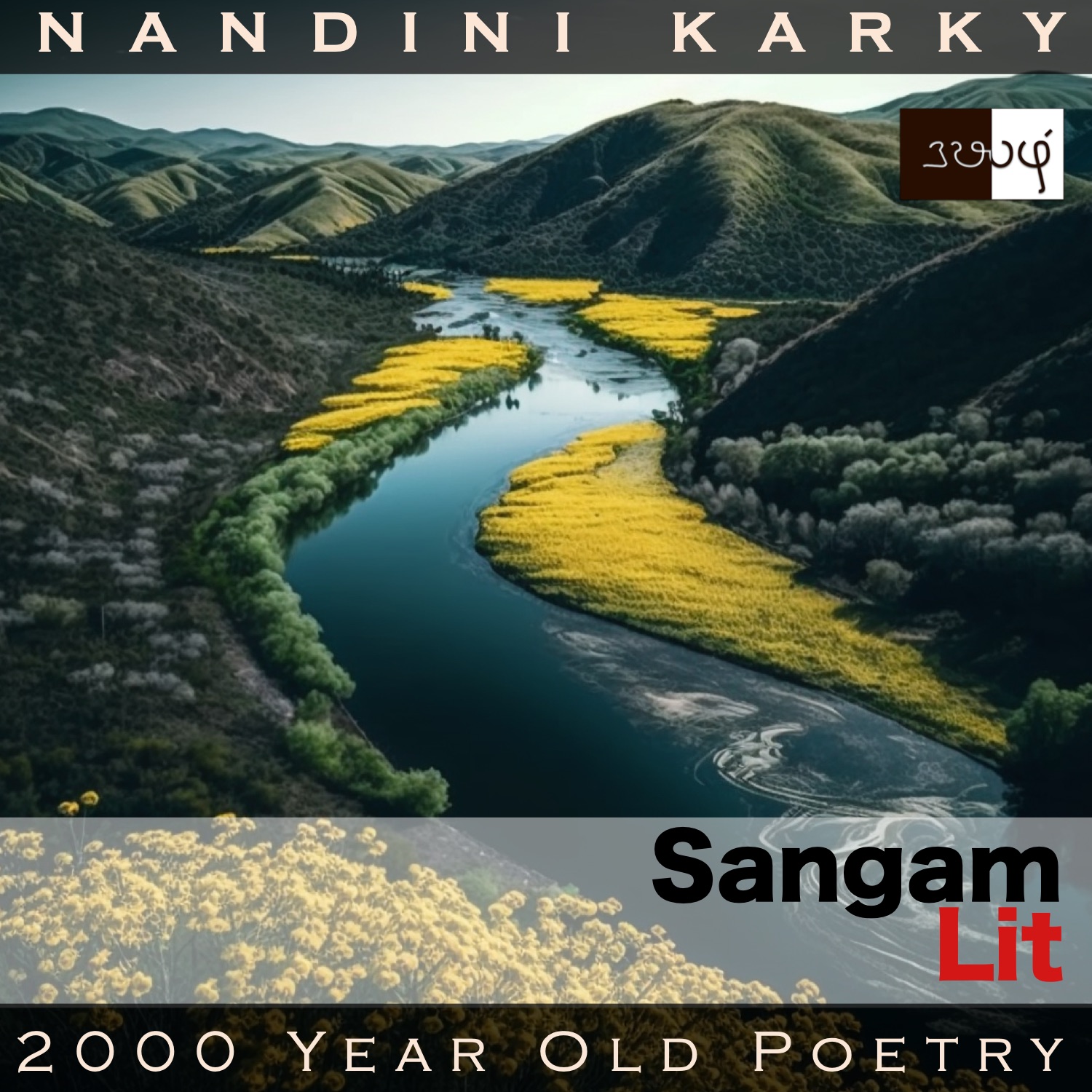Podcast: Play in new window | Download
Subscribe: Apple Podcasts | Spotify | Amazon Music | Android | iHeartRadio | TuneIn | RSS | More
In this episode, we perceive the greatness of a king and the riches of his country, as depicted in Sangam Literary work, Puranaanooru 137, penned about the Velir King Naanjil Valluvan by the poet Oru Sirai Periyanaar. Set in the category of ‘Paadaan Thinai’, the verse reveals the loyalty and respect the poet feels towards this king.

இரங்கு முரசின், இனம்சால் யானை,
முந்நீர் ஏணி விறல் கெழு மூவரை
இன்னும் ஓர் யான் அவா அறியேனே;
நீயே, முன் யான் அறியுமோனே துவன்றிய
கயத்து இட்ட வித்து வறத்தின் சாவாது,
கழைக் கரும்பின் ஒலிக்குந்து,
கொண்டல் கொண்ட நீர் கோடை காயினும்,
கண் அன்ன மலர் பூக்குந்து,
கருங் கால் வேங்கை மலரின், நாளும்
பொன் அன்ன வீ சுமந்து,
மணி அன்ன நீர் கடல் படரும்;
செவ் வரைப் படப்பை நாஞ்சில் பொருந!
சிறு வெள் அருவிப் பெருங் கல் நாடனை!
நீ வாழியர்! நின் தந்தை
தாய் வாழியர், நிற் பயந்திசினோரே!
After many songs on Aay Andiran, we turn to different king, who ruled over a smaller region, Naanjil Valluvan, who was known to share friendship with the Chera King of his times. The words of this poet can be translated as follows:
“The strong three, who have resounding drums, herds of elephants, and three seas as borders, I no longer have the desire to sing about! As for you, you have remained as I saw you then. In your country, seeds sown in watery fields never die but rise as luxuriant stalks of sugarcane; Even if rains brought down by clouds dry up in summer, like eyes, flowers keep blooming there; Day after day, golden flowers of the dark-stemmed ‘vengai’ tree are carried to the sapphire-hued waters of the sea; Such is your fertile country, where small white cascades abound in your huge hills, O lord Naanjil; May you live long! And, may your father and mother live long too, for having borne you!”
Let’s take a closer look at the words herein. The poet starts not by talking about this king, but the other three prominent rulers of the Tamil nation – the Chera, Chozha and Pandya kings, who own striking war drums, entire elephant herds and rule over great regions that extend between the three seas, which we call as Arabian Sea, Indian Ocean and Bay of Bengal today. Although their fame and strength is so celebrated, this poet declares he doesn’t want to sing about them but only about this king and his land.
After that declaration, the poet takes us on a tour of this king’s country, talking about how fertile the land is, such that there is no question of crops withering away for they all grow into lush stalks of sugarcane. Next, he mentions how the flowers which look like women’s eyes, no doubt referring to blue lilies, seem to bloom no matter whether it’s the rainy season or the scorching summer. This is followed by mention of the Indian Kino tree’s yellow flowers, floating akin to gold particles all the way to the sapphire-hued sea; Describing such is the natural wealth and beauty of this king’s country, the poet concludes with a blessing, first unto the king, and then, his parents, for having borne this gem of a person!
Two things stand out in this verse – One, the poet elevating this lord of a smaller domain much higher than the three great kings of the south. Imagine the nature of this king to have evoked such love and loyalty! The other thing is the concluding blessing to the king’s parents, for having brought such a son to this world. How much love you need to have for a person to go beyond what they do and say and delight in their very existence!




Share your thoughts...